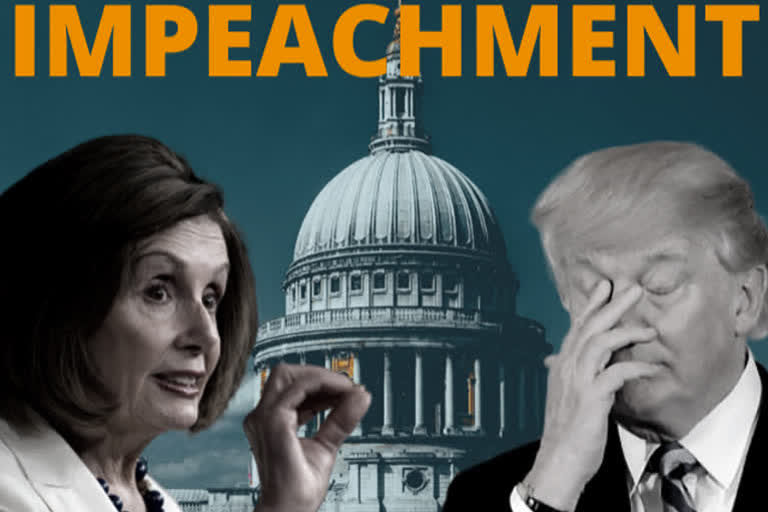Washington:Senators like to float above messy politics in what's known by some as the dignified “upper chamber," home of Congress' cooler heads and lofty rhetoric.
But as a court of President Donald Trump's impeachment, the Senate beginning Tuesday might seem more like the economy cabin of an oversold flight on an especially tense, mandatory work trip.
Rock star legal teams will cram the airy well of the chamber just a few feet from each other and Chief Justice John Roberts. Four television screens take up rarified space. Staff will snap up seats near the wall. A podium stands at the center aisle.
As for phones, it's worse than airplane mode: They are banned from the chamber. That maroons 100 chatty senators — including four Democrats in the heat of a nomination fight — for the serious constitutional business of the impeachment trial, for hours at a time.
“I'm going to be stuck in Washington for God knows how long," Sen. Bernie Sanders told supporters in Des Moines Monday night.
What to watch — and whom — when the trial gets underway around 1 p.m. EST Tuesday:
GROUND RULES
But first, naturally, some talk from senators.
The Senate opens with debate on the structure and rules of the proceedings. Senate Majority Leader Mitch McConnell is proposing a condensed, two-day calendar for opening arguments on the articles passed by the House on Dec. 18. They charge Trump with abusing power by pressuring Ukraine to help him politically, and obstructing Congress when it tried to find out what happened.
McConnell's ground rules are outlined in a four-page resolution that must be voted on as one of the first orders of business. It pushes off any votes on witnesses until later in the process, rather than up front, as Democrats had demanded. But McConnell's plan on witnesses lines up with the organizing resolution that set the structure of President Bill Clinton's trial in 1999.
DRAWING THE CURTAIN
“At all times,” according to Senate rules, a majority of senators present can vote to close the proceedings and debate in private. That would mean the cameras shut off and everyone who's not a member of the Senate kicked out of the chamber until the senators choose to reopen it.
Senators did that at various points during the Clinton trial. McConnell then argued that members of the chamber listen to each other better in private.
A LONG HAUL
After the four days of opening arguments — maximum 24 hours per side — senators will be allowed up to 16 hours for questions to the prosecution and defense, followed by four hours of debate. Only then will there be votes on calling other witnesses.
Senate rules say the trial must proceed six days a week — all but Sunday — until it is resolved.
OFF THE TRAIL, OFF THE GRID
Watch a coterie of Democratic senators who literally would rather be somewhere else — specifically Iowa and New Hampshire — ahead of their party's kickoff votes for the right to try to unseat Trump in the November election.
Watch Sens. Elizabeth Warren of Massachusetts, Bernie Sanders of Vermont, Michael Bennet of Colorado and Amy Klobuchar of Minnesota for signs of fatigue from flying between Washington and these places and coping with being off the internet for hours at a time.
Also Read: Trump slams unfair Pelosi delay, rallies conservatives
Also look for the surrogates, video calls to supporters and ads designed to give them a measure of presence in the early nominating states.
